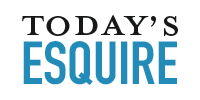By Aron Solomon
In an April memo the NFL informed all teams that Tier 1 and 2 employees (not including players) “should be expected to be vaccinated unless they have a bona fide medical or religious ground for not doing so.” Those who refuse vaccination without either a religious or medical reason will not be eligible for Tier 1 or 2 status “and therefore will not be permitted access to the ‘football only’ restricted area and may not work directly or in close proximity with players,”
This week we saw the ramifications of the NFL’s policy, with two assistant coaches – Minnesota’s offensive line coach Rick Dennison and New England’s co-offensive line coach Cole Popovich – no longer part of their team’s coaching staff for reasons related to the league’s COVID-19 requirements.
Is the National Football League going to be able to avoid legal scrutiny for their COVID-19 protocols?
No.
The NFL, which is generally a follower rather than a leader as compared with other businesses of a similar size and annual revenue ($16B in 2019, with projections of up to $19B this season), is out ahead of the game when it comes to their COVID-19 rules. But while the league’s first step into these new waters have been in the comparatively shallow end of the off-season, the harsh reality of the open water isn’t far ahead.
By making it mandatory for players and team personnel to be vaccinated (which is what the NFL protocols are doing in practice) the NFL is leaving themselves open to inevitable legal challenges.
From a purely legal perspective, it may become relevant that any and all COVID-19 vaccines have received only EUA – Emergency Use Authorization. While many believe these vaccines to be safe and 56.4% of Americans have received at least one vaccine at the time this piece was written, a new AP poll shows that most Americans who have yet to be vaccinated don’t intend to get the shot, even in light of cases tripling in the past month as the Delta Variant takes hold.
Where courts have held that employers are allowed to force employees to get other vaccines, they have recognized two major exemptions: where getting the vaccine would interfere with a person’s sincerely held religious belief and where an employee has a valid medical exemption under the Americans With Disabilities Act.
While neither of those are likely to apply here, a legal argument that NFL players and other personnel may be able to make is that they are being forced by their employer to take an experimental vaccination that could permanently injure them and/or prematurely end their career. For players, they would be taking on their own union, the NFLPA, as well as the league, as the union has worked with the NFL (critics would say “been complicit’) through the COVID-19 protocol process. But there is a legal position to be had here. How solid or tenuous it is would be is up to the courts.
There is also a psychological element at play here with those in the NFL who have resisted getting vaccinated now digging in to resist increased pressure from the league. One thing we know about professional athletes, particularly in warrior sports such as football, is that they are fiercely independent. The same can surely be said for the coaches and team personnel who help the complicated process of actually making the NFL happen each week. To imagine that more stringent league vaccination policies won’t result in some people further digging in on their positions is unrealistic.
That was seen once again this week as Buffalo Bills wide receiver Cole Beasley, an outspoken vaccine critic, once again dug in on his position after almost a month of social media silence on the issue. While Beasley has certainly been on the vocal anti-vaccine extreme of NFL players and all professional athletes, his sentiments are shared by other players, some of whom choose to remain silent but also unvaccinated.
These NFL policies for unvaccinated team personnel are in stark contrast to the relaxed COVID-19 protocols for fully vaccinated players and staff that the NFL and NFLPA agreed to less than two months ago. These relaxed protocols include no mask mandate, no travel restrictions, no mandatory quarantine following contact with a person who tests positive for COVID-19 and – probably the player’s favorite – no more daily COVID-19 tests.
The news of these two coaches leaving their teams comes 24 hours after the league notified all 32 teams that if there is a COVID-19 outbreak among unvaccinated staff or players and a game needs to be cancelled because it can’t be rescheduled, the team forfeits the game and players from both teams will not and cannot be paid. Keep in mind that if a player’s annual salary is being divided by the number of games in an NFL season and a player is penalized a week’s pay, for around 40 players, that is a million dollar penalty. And while the players who make the most money will take the biggest weekly hit, there are many players in the league who will really feel the impact of a significantly lower penalty as they earn much less.
The league also cautioned teams that rescheduling games is going to be a long shot, as extra weeks are not going to be added to the league’s schedule, which is tighter than ever given that team owners agreed before the season to add a 17th game to the regular season, which will be played over 18 weeks. Adding a 19th week for rescheduled COVID-19 games seems highly improbable.
While the NFL has drawn their line in the sand, courts can quickly erase it. While it’s easy to think of the NFL and other professional sports leagues as very unique animals, they are massive American businesses that earn a lot of annual revenue. The legal challenges are coming to businesses that mandate employee vaccination and the NFL is unlikely to be spared.



